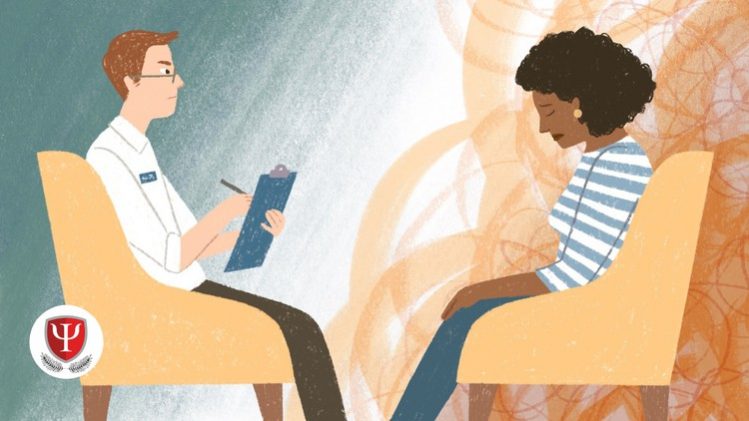
8 Basic Distress Tolerance Skills
How to create your own distraction plan
5 Self Soothing Skills
How to create your own self soothing plan
Using Radical Self Acceptance
5 Advance Distress Tolerance Skills
How to create your own emergency distress coping plan
7 Basic Mindfulness Guided Meditations
Interpersonal Skills
Managing difficult and intense emotions
Learn how to use DBT for disorders such as bipolar, depression, BPD, anxiety
Use DBT to improve people’s mental health
DBT Psychotherapy Practitioner – Use DBT in your Counseling
Help clients manage emotions, handle distress, cultivate self-love and improve interpersonal skills using DBT Skills
In this course, you will learn complete Dialectical Behavioral Therapy (DBT). The four modules of psychological and emotional function that DBT focuses on include: Mindfulness, distress tolerance, emotion regulation interpersonal effectiveness.
About Instructor:
Aman Varma has undergone accredited course training in CBT practitioner, Diploma in Hypnotherapy, Mental Health Practitioner, NLP Specialist Practitioner, Diploma in Psychological Counseling and Diploma in Modern Applied Psychology.
COURSE CURRICULUM
7 sections • 61 lectures • 7h 17m total length
Module 1: Basic Distress Tolerance Skills 12 lectures • 46min
- What is DBT Dialectical Behavior Therapy?
- Basic Distress Tolerance Skills
- Self Destructive Coping Methods
- Suffering is Optional
- Distraction Skill 1 – Distraction from Self Destructive Behaviors
- Distraction Skill 2 – Pleasurable Activities
- Distraction Skill 3 – Attending to Others
- Distraction Skill 4 – Distracting Thoughts
- Distraction Skill 5 – Leaving
- Distraction Skill 6 – Chores & Tasks
- Distraction Skill 7 – Counting
- Creating your own distraction plan
Module 2: Self Soothing Skills 8 lectures • 30min
- What are self-soothing skills
- Self Soothing Skills 1 – Smell
- Self Soothing Skills 2 – Vision
- Self Soothing Skills 3 – Hearing
- Self Soothing Skills 4 – Taste
- Self Soothing Skills 5 – Touch
- Creating your own self-soothing plan
- Radical Self Acceptance
Module 3: Advanced Distress Tolerance Skills 7 lectures • 15min
- Advance Distress Tolerance Skills
- Advance DTS 1 – Safe Place Visualization
- Advance DTS 2 – Time Out
- Advance DTS 3 – Cue Controlled Relaxation
- Advance DTS 4 – Self Encouraging Thoughts
- Advance DTS 5 – Self Affirmations
- Emergency Coping Plan
Module 4: Mindfulness Skills 9 lectures • 56 min
- What is Mindfulness?
- Focusing on a single minute
- Focusing on a single object
- Instructions for focusing on a single object
- Band of light
- Inner outer meditation
- 3 minutes of thoughts
- Thought Defusion
- Describing your emotions
Module 5: Interpersonal Effectiveness 22 lectures • 4hrs 3min
- Introduction to Interpersonal Effectiveness
- Start with YOU 1
- Start with YOU 2
- The Golden Rule
- Being how you want to be treated
- Encouragement
- Appreciation
- Forgiveness
- Listening & Understanding
- Concern—the Ability to Show You Care
- Help—the Ability to Reach Out
- Action—the Ability to Make Things Happen
- Results—the Ability to Produce
- Influence—the Ability to Lead
- Sensitivity—the Ability to Feel and Respond
- Motivation
- Affirmation—the Ability to Build Up
- Pride
- Insecurity and Moodiness
- Perfectionism & Oversensitivity
- Negativism
- Spirituality for Interpersonal Skills
Module 6 : Leading Yourself 1 Lecture 45min
DBT Skills training is made up of four modules: core mindfulness, distress tolerance, emotion regulation, and interpersonal effectiveness. They are designed to specifically assist individuals in better managing behaviours, emotions and thoughts. The intent is to help people who experience problems with anger or the expression of anger, episodic depression, irritability or anxiety, intense or chaotic relationships, impulsivity, stress and feelings of emptiness.
Core Mindfulness teaches a person how to focus their mind and attention. Distress Tolerance develops acceptance of the current situation as well as crisis survival skills to decrease the likelihood of engaging in problematic behaviour. Emotion Regulation skills include learning to identify and label current emotions, identifying obstacles to changing emotions, reducing emotional reactivity, increasing positive emotions and changing emotions. Interpersonal Effectiveness skills teach helpful strategies for asking for what one needs, saying no, and coping with interpersonal conflict.
Anyone regardless of their education qualification, profession, and age can take this course to educate themselves about mental health. This course is delivered in a very simplified form. The lessons are very simple to understand and practice. Even without prior knowledge of how psychotherapies work, you will still be able to apply the techniques in your life.
As it is not feasible to visit a therapist all the time, it is better to increase your knowledge and skills regarding emotional problems so that you can help yourself. This course intends to facilitate you with strategies that you can apply in your life without any external help. Think of this course as an expert’s self-help manual of emotional wellbeing.
Dialectical Behavioral Therapy (DBT) for Mental Health is a powerful step by step program to help you:
- Understand the nature of your mind
- Manage overwhelming emotions and thoughts
- Maintain mental health, productivity, and motivation
- Manage Stress & Overwhelming Emotions
In this course you will learn:
- 8 Basic Distress Tolerance Skills
- 5 Advance Distress Tolerance Skills
- 5 Self Soothing Skills
- How to create your own distraction plan
- How to create your own self-soothing plan
- How to do Radical Self Acceptance
- 7 Basic Mindfulness Guided Meditations
- Interpersonal Skills Basic to Advance
- How to get back to an inspired, enthusiastic and productive life.



